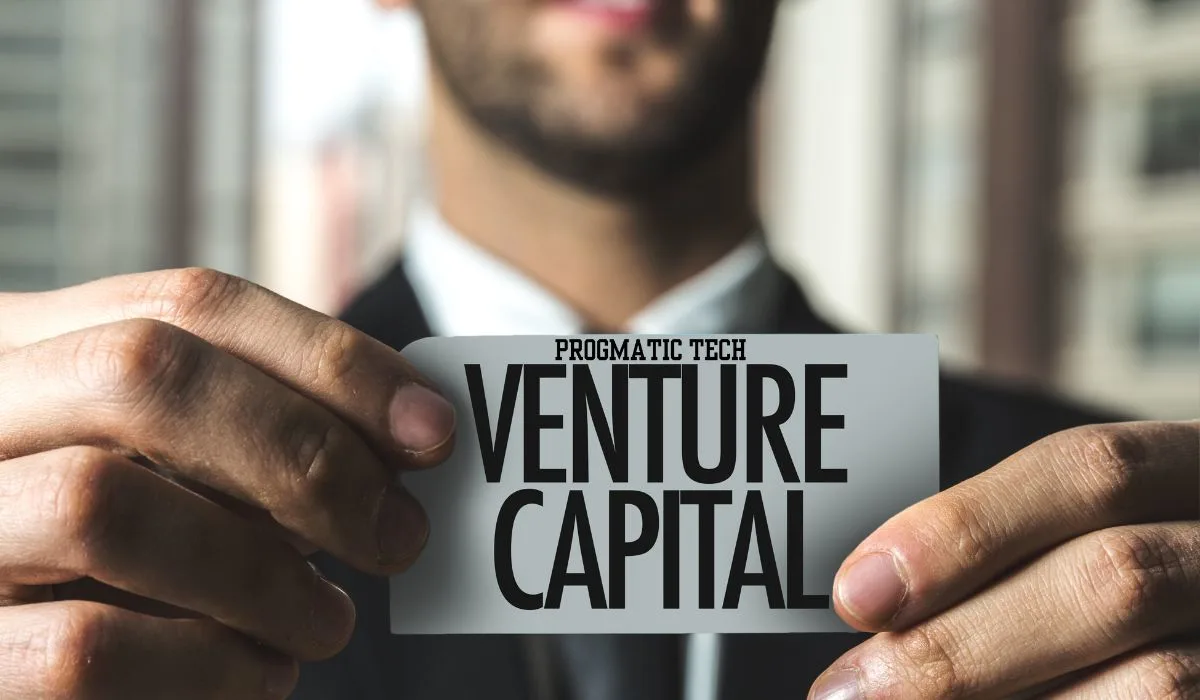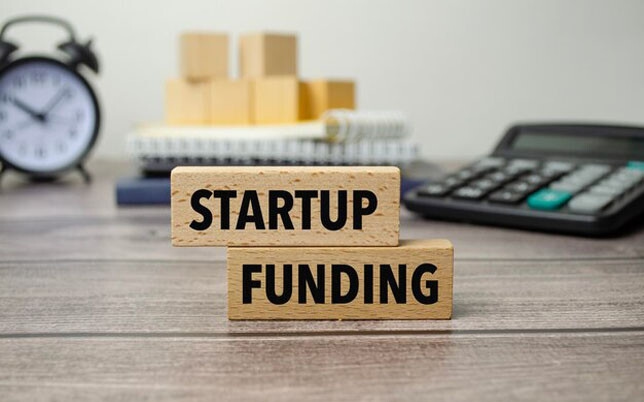Did you once have a grand idea for a new app, robot toy, or even a website, but you didn't have the funds to develop it? This is the point where Venture Capital Startups are available. The term "start-up" means that a Startup is a brand new business with a new concept. venture capital is the amount of money that investors provide to startups to aid them in their growth. Also, Venture Capital Startups are companies in the early stages which receive money from investors to create their own ideas, employ staff, and connect with more customers.
The investors don't provide the money away as gifts. They are given a small portion of the company, and believe that it will be successful in the future. It can be thought of as this: The start-up is the concept and the investor is the one with the funds and together they work to create something exciting and big.
What I Mean When I Say "Venture Capital Startups"
When I refer to Venture Capital Startups I'm referring to companies that:
- Rapidly grow
- Are you looking to be huge and not only "small but nice"
- Make money from professional investors, also known as "VCs" (venture capitalists)
- Give away a part from their business (equity) in exchange
Also, What is venture capital in the context of startups?
I prefer to explain it in this way:
A venture capitalist will give your startup capital today to help your business develop into a major success in the future. In exchange the investor gets part of your business and hopes to turn huge profits in the event that you sell or go public.
It is not a traditional bank loan. It is not a loan that you pay back each month. Instead, you get to share the future positive outcomes. This is the reason the reason venture capital is crucial in the early stages of startup companies is a huge concern. For certain startups, it's the only way to expand quickly enough to be competitive in the market. In other cases, it's not necessary at all.
Read also: How To Get Investors For Your Startup
Why Venture Capital Is a Big Deal for Startup Growth
You may think: Why venture capital is crucial to startups? Here's venture capital can help the growth of startups in real everyday
- You earn money to hire more quickly.
- It is possible to build products faster than bootstrapping
- You can invest in marketing and branding
- You may be able to access markets or countries that are not yet open.
This is a part of your growing your business strategy.
Growth isn't just about money. Investors who are successful also provide:
- Information from those who have been in many different companies
- Introductions to partners, clients and talent
- Help in the upcoming funding rounds
A lot of investors say, "We don't just bring cash, we bring a network."
That network could help you save months, or even years.
However, not every company requires VC. If you're establishing the foundation of a steady, calm local business it is unlikely that you need investors that expect to see rapid growth.
What is the reason that venture capital is focused upon high growth startups:
VC funds are funded by the investors they own (called LPs). They are required to give LPs the opportunity to earn a substantial amount. To achieve this they must have some businesses in their portfolio to expand by 10x, 50x or even 100x. They are therefore looking for companies which might grow into enormous.
Startup Funding Stages Explained

The majority of guides on Google discuss starting stages of financing that are explained using complicated charts. I'd like to simplify it.
Here's the standard path:
-
Idea / Pre-Seed
-
You've got an idea.
-
Perhaps a small-scale prototype.
-
Your savings, your friends family, or small pre-seeded savings.
-
-
Seed Round
-
This is an early version and its first customers.
-
You raise funds from angel investors as well as small VC companies.
-
This is a way to determine the market fit of the product: "Do people really want this?"
-
-
Series A
-
You have clear demand.
-
Money is used to scale More users, more markets and a better team.
-
-
Series B, C, D...
-
Now, it's all about huge expansion.
-
You expand into new countries purchase other companies or develop new products.
-
This entire journey is described in many guides as startup funding stages described. There are many startups that do not require every stage. Some begin with seed funding and grow to become profitable. Some make it to IPO or a major acquisition.
How Venture Capital Funding Works for Startups
Many founders have asked me to provide the step-by-step guide to obtaining venture capital. This is my basic version.
1. Get Your Basics Ready
Before you start thinking about how venture capital financing can help startups You must have:
- A clear problem you solve
- An actual customer. Not an idea
- A simple deck (10-15 slides)
- An approximate business plan: "How will this make money?"
2. Build a Shortlist of Investors
Find VCs who:
- Put money into your stage (pre-seed seeds, seeds, etc.)
- Put your money into your chosen sector (AI fintech and health, etc.)
- Checks (ticket dimension) that are appropriate for your needs
This is why knowing the top venture capital companies around the world as well as the the best venture capital firms in the USA to help startups is beneficial. There is no need for all of these. Only select the ones who are the right fit for you..
3. Reach Out and Pitch
You're looking to display:
- Big market
- A strong team
- Real traction (or an early strong signal)
4. Deep Dive and Due Diligence
If you're a favorite among investors They will look further:
- Product demo
- Calls to the customer
- Financial model
- Legal checks
Here, all legal requirements for venture capital and the documents required to fund venture capital are now extremely real. I'll list them in a future section.
5. Term Sheet and Deal
If the investor says "yes," they send an agreement sheet. It is a brief document that describes:
- How much is the amount of money
- What is the value
- What percentage of the business they are able to get
- What rights do they have (board chair, seat etc.)
You negotiate. You make a signature. Lawyers draft final documents. Money is transferred. You can celebrate (and go back working). This, in simple terms is how venture capital financing can be used to help startups.
Read also: Startup Growth Metrics To Track
Equity, Valuation, and Control in VC Deals
One of the most difficult tasks to founders the issue of distributing equity to startups in VC deal.
Here's a approach to think about it:
- Your company's business is similar to a pizza.
- Equity refers to "how many slices" each individual has.
- If you're able to raise money by baking an larger pizza and then give some of the pizzas to the public.
Let's say:
- Prior to funding you and your co-founders are jointly owned 100% of the company..
- A VC will offer to pay the money and receive 20 percent.
Now:
- Your co-founders and you each have 80% share..
- The VC holds 20% of the shares..
In many rounds the percentage decreases. If the company grows massive, your less sized portion could still be worth quite a bit.
The most important ideas from the equity negotiations:
- Valuation What your business has "worth" on paper
- Dilution Your share becomes smaller each time the issue of shares increases
- Control Who is able the power to make big decisions
Good investors strive to keep a balance between the three. They want to keep you motivated. You want them to be involved but they should not run the business for you.
I like to think about equity as follows: "Does this deal still make me excited to build this company for the next 7-10 years?"
If the answer is "no," the deal is not the right one.
Legal Side, Documents, and Venture Capital Requirements
Many entrepreneurs worry about legal requirements of venture capital. It is not necessary to be an attorney. However, you should be aware of the fundamentals.
Here are some of the things investors are looking for:
- Clean corporate set-up (proper registration)
- Table of Clear Cap (who is who)
- IP is the property of the company (not to a freelancer, or former employer)
- There are no hidden large debts or legal issues
What are what are the documents required for venture capital investment? The exact list will depend on the country you reside in, however typically, it consists of:
- Pitch deck
- A business plan or memo
- Financial model (even a simple one)
- Cap table
- Documents for registration of a company
- Shareholder agreements
- Key Contracts (big clients Key suppliers, key clients)
Consider this as a part of your checklist for funding venture capital (I will post the complete checklist later). Remember: when you are considering serious transactions, it is best to always consult with a reputable startup lawyer in your nation. This guide is intended for education and not for legal guidance.
Building Strong Investor Relations for Startups
The process of raising money is only the beginning. Maintaining contact with investors is an important component of startup investor relations.
Here's what great relationships with investors should are like:
- You will send a brief update each month or quarterly
- You're honest about both good news as well as negative
- You clearly ask for assistance ("We require introductions to banks" "We are hiring a CTO")
Many entrepreneurs fear investors. However, investors would like you to be successful. They will only be successful if they succeed.
An experienced investor once said to an entrepreneur "I can take bad news. I'm not able to take on unexpected events."
That line stuck for me. Do the right thing early.
A good investor relationship can also aid you when it comes time to raise future rounds. New VCs often ask former VCs what they think of you as a person to collaborate with.
Best Sectors and Venture Capital Trends (Including AI)
Let's discuss the latest trends in venture capital and the locations where money typically flows.
VCs are a type of sector that:
- Markets are big
- Technology is constantly evolving.
- There are still opportunities for new winners.
Common areas that are discussed as the best areas to invest in venture capital:
- Software (SaaS)
- Fintech
- Healthtech
- Cleantech / Climate
- AI and data-driven startups
It is possible to ask, Are venture capital companies making investments into AI startup companies? Yes, lots of them. There's an abundance of attention paid to venture capital financing specifically for AI startups particularly ones which:
- Help other businesses save time or money.
- Utilize AI to tackle difficult, real-world issues (health or logistics, climate, etc.)
However, keep in mind that trends are constantly changing. The most secure "sector" is one where:
- You are aware of the issue deeply
- Customers are willing to pay for their services.
- You can design an item that is better than the competition
Don't be a slave to hype just to conform to a fashion. VCs will feel this.
Risks of Taking Venture Capital Funding
The part that a lot of glossy guides conceal is the risks associated with taking on risky venture capital investment.
Here are a few real dangers:
-
It is possible to lose control more quickly than you anticipate.
If you don't give away enough equity in the beginning, you could be viewed as an employee within your own company in the future. -
The pressure for rapid development.
VC money seeks big results. Sometimes this can cause you to expand too quickly and destroy important things. -
Some investors are not beneficial.
Some may be inactive. Some may push the wrong way. Saying "yes" to the wrong investment is more damaging that telling "no" to money. -
It's harder to make a change in the way you think.
Once you accept VC and HTML0, it becomes more difficult to think, "I just want a small, calm business now." The game is changed.
This is the reason your growth strategy for your startup is essential. Are you truly ready to be a part of with the VC game? It could be a great experience. However, it's not the only one.
Read also: Top AI Startups: A Comprehensive Guide
Venture Capital Funding Checklist
Let's make a basic venture capital checklist you can utilize.
Venture Capital Startups: My Pre-VC Checklist
Before you send an email to one VC I would suggest that you be sure to check the following boxes:
Market and Problem
- I'm able to explain the issue in just a couple of sentences.
- I am aware of who my ideal customer is.
- I know the names of companies or individuals who would like this.
Product and Traction
- I've got at least at the very least a mock-up, demo, or a prototype.
- A few people have tried it or I have early evidence (like an open waitlist).
- I have a solid strategy to reach those next users of 100, 1,000.
Team
- I understand the reason this is the case. I know why am the best person to create this.
- I am aware of what skills I don't have and the people I'll need to find.
Numbers
- I have a basic strategy for 12-24months.
- I know what amount of I'll need in cash and how I plan to spend it.
Legal and Structure
- My set-up for my company is clean.
- I have a startups equity share distribution in VC transactions is a rough estimate.
- I am aware of the basic legal requirements for venture capital and the documents required to fund venture capital in my country.
If you are able to find the majority of these, then you are now ready to begin talking to VCs.
Top VC Firms and Unicorn Startups
You've likely seen lists such as The Top Twenty Venture Capital Startups or Top venture capital companies around the world. These lists usually use the same names for all of them.
Some of the most well-known global VC companies are:
- Sequoia Capital
- Andreessen Horowitz
- Accel
- Kleiner Perkins
- Lightspeed
- Bessemer and other people
These are usually included on lists of the top venture capital firms in the USA to help startups as well as numerous younger funds. In the case of startups there is a lot of talk about the top venture capital-backed unicorn-related startups. "Unicorn" means a private company worth more than $1 billion. The unicorns are used to provide examples of what are the advantages of venture capital investment for startups? The benefits of venture capital for are huge.
- Product growth is faster
- Global expansion
- Strong brand
- Exciting exits for founders and investors
Here's something I'd like you to be aware of:
For each the unicorns, there's numerous businesses that were small, yet still managed to keep their founders content and financially sound.
Do not judge your worth solely on the words of unicorns. These lists can be used to inspire and not to put pressure on yourself.
Which Venture Capital Fits into Your Startup Growth Strategy
Let's tie all this with your business growth strategy. It is possible to think of VC capital as fuel. Fuel is only useful in the following situations:
- You know where you're driving
- You are aware of how to steer
- Your vehicle (your start-up) will not break when you accelerate
VC is a powerful fuel. It allows you to do things faster. However, you need to be prepared for the speed. For some founders Venture Capital Startups is the best option:
- Big market
- Tech product
- Global plan
- You're ready to take on the world or stay home
In the case of others, bootstrapping or loans with small amounts are more appropriate. It's okay.
Expert Opinions and Simple "Quotes" You Can Remember
Here are some short "expert style" lines I am a fan of keeping in mind. They're not the words of one particular person, but are concepts that I've seen a lot of knowledgeable founders and investors have in common:
"Raise money when you have a story to tell, not when you are out of cash."
Investors are able to sense anxiety. It can be detrimental to your financial terms.
"We invest in teams more than in ideas."
Many Venture capitalists use this phrase in various ways.
They know ideas are changing, but the people don't.
"The best pitch is a clear problem, a simple solution, and proof that someone cares."
Slides and graphics don't matter as much as clarity.
Be aware of these when you design your own VC trip.
Read also: Ways to get a consistent business Line Of Credit In 5 Steps
FAQs About Venture Capital Startups
Here I'll address a few commonly asked questions, using many of the long-tail terms you mentioned.
1. What's the advantages of venture capital to startups?
When I consider what are the benefits of venture capital investment for companies that are just starting out I am able to have a few major ones:
- You receive money with no the monthly payments.
- You have access to experts' guidance and connections.
- You will grow faster than simply bootstrapping.
- You can make higher-risk bets (new markets or brand new offerings).
However, keep in mind that this comes with pressure and dilution for rapid growth.
2. How can I begin with a step-by-step guide to venture capital financing for my business?
This easy flow to create your own step-by-step guide to venture capital financing:
-
Know the concept of venture capital in the context of startups and determine whether it's right for you.
-
Make sure you have a clean caps table as well as your legal structures.
-
Make sure you have a clear deck of cards and a basic financial model.
-
Find out top venture capital firms across the globe and the top venture capital firms in the USA in search of startups that are a good match for your sector and stage.
-
Start outreach, pitching, as well as follow up.
-
Perform due diligence on documents and other paperwork.
-
Discuss valuation and conditions.
-
Then, close the session. Announce it and implement your business growth plan for your startup.
3. What are the primary legal requirements for venture capital? I should be concerned about?
The precise requirements of the law regarding venture capital are based on the country you're in and the type of business.
But most investors will be looking at:
- Proper incorporation
- Records of clean ownership
- The co-founders have signed agreements and important employees
- IP given to a company
- No significant lawsuits or debts that are not disclosed.
For further information, make sure to speak to an attorney for startups.
4. What are the documents required to obtain venture capital financing?
In simpler words, what documents needed to obtain venture capital financing?
- Pitch deck
- Registration documents for companies
- Cap table
- Financial model
- Key supplier and customer contracts
- The founders' agreement as well as ESOP plan (if there is one)
- Data room that contains your primary numbers and reports
There is no need to be "perfect," but you must be organised.
5. Do Venture Capital Startups manage the issue of distributing equity in their startups in VC agreements?
The majority of Venture Capital Startups are trying to:
- Make sure that the founders have a solid majority of them early (often 60-80% following the seed)
- Set aside an options pool to important hires (10-20 10-20%)
- Give investors a fair amount but not enough that founders are demotivated.
Every deal is different. It is important to consider the long-term: "After 2-3 rounds, will the founders still own enough to care deeply?"
6. What's the dangers of taking on the venture capital route?
The risk of taking a investment in venture capital comprise:
- Control issues
- There is a lot of pressure for a rapid growth
- A possible misalignment of the company with investors
- A lot more difficult to go back to a quiet, modest business
This is the reason you should be careful about who you allow into your cap table.
7. Which are the most profitable areas to invest in venture capital currently?
The trends change, but we often hear about the most profitable areas for venture capital investments for example:
- Software / SaaS
- Fintech
- Health tech
- Energy and climate
- venture capital financing to AI startups
If you are asking, are venture capital firms invest into AI startup companies? Yes, a lot of them. However, the most successful companies concentrate on the real issues rather than only buzzwords.
8. What is the best way to make VC integrate into the stages of funding for startups explained?
Imagine the stages of startup financing explained by an escalator:
- Bootstrapping / friends & family
- Pre-seed
- Seed
- Series A
- Series B, C, D...
- Exit or IPO
VC typically begins in Series A or seed and onward. Sometimes, it is even pre-seeding in hot sectors.
9. What do I gain knowledge from the top venture capital-backed unicorn companies without replicating them?
You can check out the top venture capital-backed unicorns and ask questions like:
- What problem were they able to resolve?
- How did they demonstrate their interest early?
- How did they make use of VC funds to increase their growth instead of just spending?
Do not attempt to copy every move. Instead, copy the way you think clearly, sound execution, and smart investment of capital.
Conclusion: Why Venture Capital Startups Matter
Now you know that Venture Capital Startups are new companies that get help and money from investors to grow quickly. These startups are important because they:
- Turn smart ideas into real products
- Create new technology and tools people can use
- Give jobs to many people
Without venture capital, many cool ideas might stay only in someone’s head and never become real. So when you hear about a famous tech company or a popular app, remember: It might have started as a small Venture Capital Startup with a big dream and the right support.







